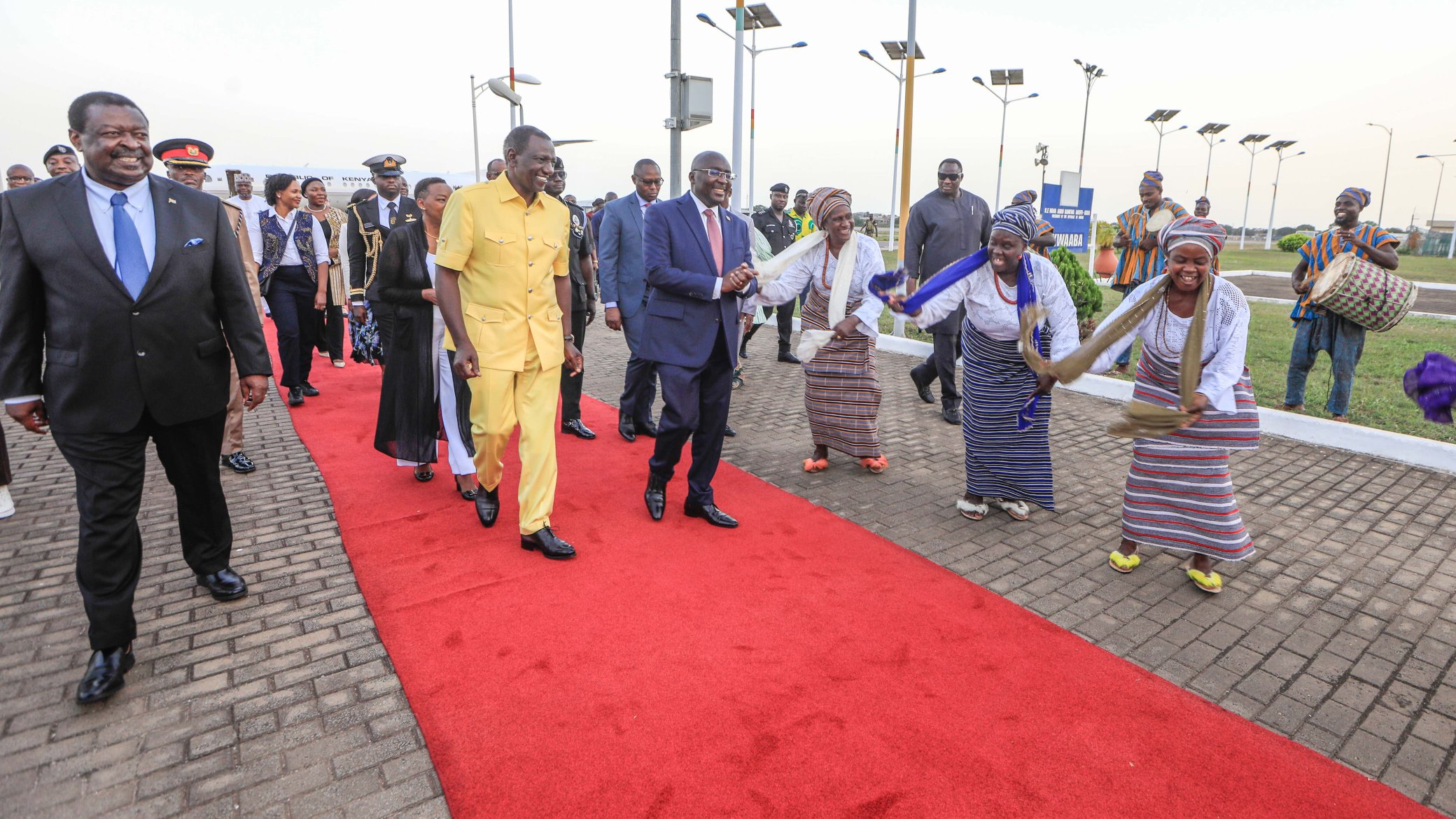The seat of the Chairman of the African Union Commission (AUC), is about to rotate the full circle of the continent. And as it were, Kenya is preparing to field a candidate for the position, the second in just five years.
In 2017, the Kenyan government fronted its Foreign Affairs Minister Amina Mohammed, who however, lost at the 6th round of the vote in Addis Ababa, Ethiopia. She was defeated by the current chairman Moussa Faki of Chad, despite massive lobbying and assurances by the Kenyan administration that she would take the seat.
The next elections for the AUC chairman are set for January/February 2025 of thereabout and again, the Kenyan government has given indications that it will support former Prime Minister Raila Odinga. Lobbying is already underway.
Notably, Raila who has already confirmed and accepted the candidacy, is the most prominent politician in Kenya and the biggest critic of the William Ruto administration, having lost to Ruto in the 2022 presidential race.
At 79, Raila the son of first Vice President of Kenya Jaramogi Oginga Odinga, has strode the Kenya’s political landscape for over four decades, tried to capture the presidency five times, served as Cabinet Minister, Prime Minister, opposition leader and his last official role as AU High Representative for Infrastructure Development from 2018 to 2023.
The question now raised by his candidacy and the prospective support by the government; is Kenya the bully of the East African region?
Africa has five regions – Northern, Central, Southern, Western and East Africa and the six being the Africans in diaspora.
Countries in each region are united in their own unique ways by their language, culture and colonial history, economic blocks and other aspects. Its only at the AU that they come together for unity of purpose in the context of the global interests.
The AUC chairmanship has been held by Mali in West Africa from 2003 to 2008, Gabon (Central Africa) from 2008 to 2012, South Africa (Southern) from 2012 to 2017 and and now Chad (North/Central Africa) from 2017. Its now time for the seat to move preferably to Est Africa from February 2025.
The Eastern Africa has over a dozen countries but the East African Community as an organization has seven members.
At the moment, Eastern Africa holds the ceremonial Chairmanship of the the African Union through the President of Comoros Azali Assoumani. He took over from President Macky Sall of Senegal (West Africa) and is set to hand over to a new chairman from Northern Africa today.
The chairman of the AUC is regarded as the Prime Minister of Africa. A very engaging, hands-on role of running all the affairs of the commission. Its therefore a very contentious, highly diplomatic and controversial position in the continent.
When it was time for the Southern Africa to occupy the seat in February 2012, South Africa fronted Dr Nkosazana Dlamini Zuma, the former wife of the then sitting President Jacob Zuma. At the time she was the Minister for Home Affairs under President Zuma. The two had been married in 1982 and were divorced in 1998.
That raised jittery across the continent. There is a gentleman agreement among the AU members that the more economically powerful nations of Africa should not front candidates for the AUC chairmanship. South Africa had violated that unwritten rule and the other nations were not amused.
Never mind that Dr Zuma, a medical doctor had an impeccable record. She was 63 at the time. She had made a name as a vicious fighter against apartheid in South Africa, a mission that had even led her to exile in Europe for years.

Back in her country, she had served in all governments, starting as the Health Minister in the Nelson Mandela administration for five years, then Foreign Affairs Minister for 10 years under President Thabo Mbeki, then Home Affairs Minister under the former husband Zuma for three and a half years. It was Jacob Zuma who fronted her for the AUC job.
Still, the debate revolved around the arrogance and the bullying attitude of South Africa. That year 2012, the then AUC chairman Jean Ping of Gabon decided to seek a second term after completing the first, four-year term. So he was put on the contest with Zuma.
The controversy led to a deadlock and Zuma could not get the two-third of the the 54 votes of the AU nations. It was not until six months later in July 2012 that a second vote was held and she was elected AUC chair.
Opinion is still divided as to how she presided over the chairmanship but in 2017 she decided not to seek a second term. She is still serving as a minister in the Cyril Ramaphosa administration.
Having fronted a candidate in 2017, will Kenya also be described as a bully of the region by fielding another candidate in 2025?
In round one in 2017 Amina Mohammed got 16 votes and Moussa 14. In round two she got 17 and Moussa 24. Other nations that were not in top two decided to back the Chad candidate. At the 6th round, 15 countries abstained and the Chad candidate took it with 39 votes.
Kenya’s regional allies Uganda, Burundi, Djibuti and Tanzania did not vote for her even with the massive lobbying by the Uhuru Kenyatta administration. South Sudan however voted for her. There was a wide-range of issues that led to her loss despite having been a favourite candidate. Will the same issues revisit Kenya if the government fronts Raila Odinga, or will it be different this time?





